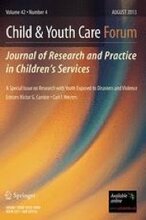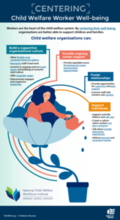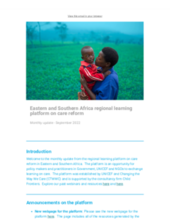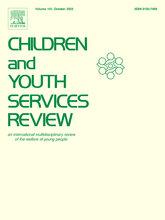Displaying 1361 - 1370 of 14348
COVID-19 led to widespread disruption of services that promote family well-being. Families impacted most were those already experiencing disparities due to structural and systemic barriers. Existing support systems faded into the background as families became more isolated. New approaches were needed to deliver evidence-based, low-cost interventions to reach families within communities. The authors adapted a family strengthening intervention developed in Kenya (“Tuko Pamoja”) for the United States.
This study sought to explore the psychological well-being, academic adjustment, and quality of parental attachment of LBC during COVID-19 in rural China based on Left-Behind Children’s (LBC) word of mouth.
The purpose of this study was to establish the prevalence of adverse childhood experiences (ACEs) in child residential care and to explore predictors of accumulation and clustering patterns.
This infographic describes how child welfare organizations can center child welfare worker well-being to better support children and families.
This practical manual was designed for practitioners and service managers who want to build their knowledge and skills on meaningful participation.
Annual report of the Special Representative of the Secretary-General (SRSG) on Violence Against Children to the UNGA. SRSG reports annually to the Human Rights Council and the General Assembly on progress achieved and lessons learned on the protection of children from violence.
This is the monthly update of the Eastern and Southern Africa Regional Learning Platform published in September 2022.
The purpose of this qualitative study is to explore the experience of birth children of foster parents. The study examines the retrospective narratives of 14 Israeli adults, ages 18–38, whose families fostered a child for at least one year in the context of the Israeli foster care system.
This report updates the authors' previous findings to provide the most current estimates of COVID19 associated orphanhood and caregiver loss during the first 26 months of the pandemic (March 1, 2020 – May 1, 2022).
This is the first in the series of global webinars on ECD and climate change from the Early Childhood Regional Networks - AfECN, ANECD, ARNEC and ISSA and Global Early Childhood Network ECDAN. With speakers from across the globe including youth advocates, climate experts and ECD practitioners, the webinar will explore the global impact of climate change and environmental degradation on young children, share some experiences from Africa and Asia Pacific regions, and agree on key messaging for COP27 (Egypt 7-18 Nov 2022 – Conference of the Parties, global climate summit), for the ECD and climate change agenda to include the youngest children in decision making.








